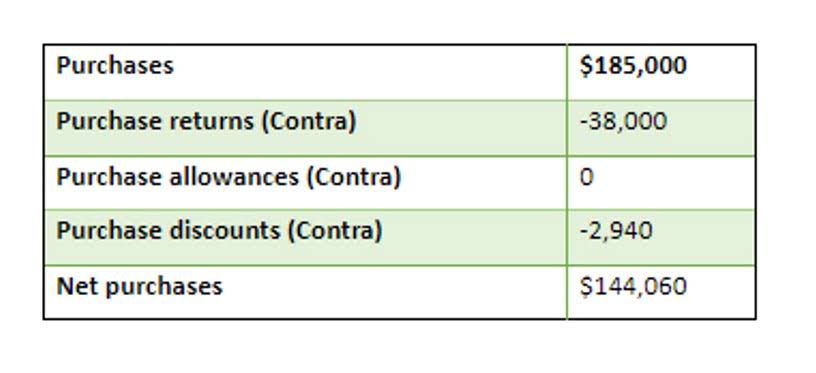
The path to a government accounting career depends on which job area you want to pursue. Typically, accountants must hold certain certifications and/or licenses, depending on the state where they work. Government accountants may specialize in accounting subfields that suit their job roles and interests. Professionals with the specializations below often serve in government agencies.
- The amount of budget authority provided can be specific—such as when the Congress provides a set amount for a program or activity—or indefinite.
- Government accounting refers to the process of recording and the management of all financial transactions incurred by the government which includes its income and expenditures.
- That spending is generally governed by statutory criteria and, in most cases, is not constrained by the annual appropriation process.
- In such guidance, auditors were advised to evaluate whether the accounting principles and presentation used in the financial statements and related notes were materially different than those required by GASB.
- Revenues, offsetting collections, and offsetting receipts are funds received by the federal government for various purposes and activities.
- The “available” concept means that the revenue and other fund resources are collectible within the current period or sufficiently soon thereafter to be available to pay for the current period’s liabilities.
The Focus of Governmental Financial Reporting
Although most federal programs operate on a fiscal year basis, some aspects of programs are set to the calendar year. Cost-of-living adjustments for Social Security and other programs, for example, are set on a calendar year basis. In addition, individual income taxes are levied on a calendar year basis, and economic data are typically reported for calendar years. Although https://www.bookstime.com/ some major legislative proposals could significantly affect the economy—by affecting consumer prices or the labor supply, for example—most would not. By long-standing convention, CBO’s cost estimates typically do not account for the possible effects of legislation on GDP. Occasionally, however, the Congress asks CBO to provide a dynamic analysis of proposed legislation.

What is Governmental Accounting Standards Board (GASB)?
From maintaining transparency to ensuring compliance with regulations, we’ve got you covered. GAAP monitors and confirms the information that’s provided to consumers and investors by public companies. It adds a measure of trust to transactions so consumers and investors are more comfortable parting with their dollars.
- With technology’s advancement, the future of government accounting could look very different.
- The Governmental Accounting Standards Board (GASB) is an independent, non-political organization founded in 1984.
- For instance, it can involve tracking spending on public health services such as hospital facilities, vaccines, and medicines, and comparing these expenses against allocated budgets.
- For example, we identified about $70.4 billion in financial benefits for the federal government in fiscal year 2023—a return of approximately $84 for every dollar invested.
- Various governmental accounting systems are used by various public sector entities.
Government Accounting and Auditing

The Budget Control Act of 2011 established caps for fiscal years 2012 to 2021; no caps were established for subsequent years. The regulatory landscape is complex and ever-changing, making it difficult for accountants to stay abreast of the latest rules and regulations. Implementing an effective accounting system can be challenging when numerous governmental bodies are involved, each following its policies and procedures. Wafeq offers state-of-the-art solutions tailored to government accounting needs.
. . . Cash Accounting, Accrual Accounting, and Fair-Value Accounting?

For example, a cost estimate for a bill that would raise or lower coinsurance for Medicare could change the number of people who chose to receive health care. As a result, CBO’s estimate of spending for that program could rise or fall in relation to the agency’s projection of such spending under current law. Mandatory spending (also called direct spending) consists of outlays for certain federal benefit programs and other payments to individuals, businesses, nonprofit institutions, and state and local governments. That spending is generally governed by statutory criteria and, in most cases, is not constrained by the annual appropriation process. Social Security, Medicare, and Medicaid are the three largest mandatory programs. Adherence to these standards ensures consistency, transparency, and accountability in financial reporting.
What Are Municipal Bonds?
Distinctly different sets of U.S. accounting and auditing standards are applicable to the financial statements of governmental entities and certain other entities that are significantly funded through government assistance. For nongovernmental entities, GAAP is governed principally by FASB, and GAAS by either the AICPA’s Auditing Standards Board (ASB) or the PCAOB. Specialized accounting standards for state government accounting definition and local governments, however are set by GASB, while those applicable to the federal government and its agencies by the Federal Accounting Standards Advisory Board (FASAB). Along with FASB standards, all of these are considered authoritative when applicable and part of GAAP. Given the unique needs of governments, a different set of accounting standards have been developed for these organizations.

